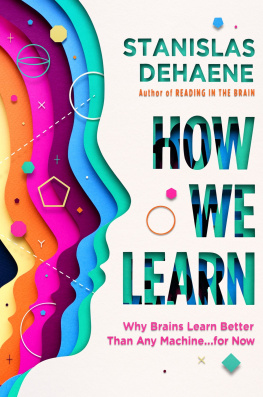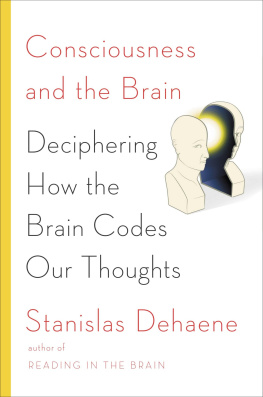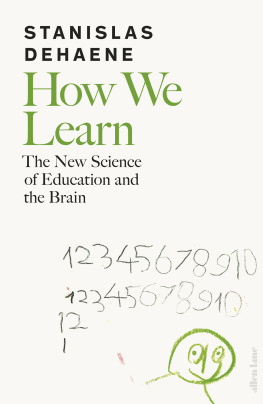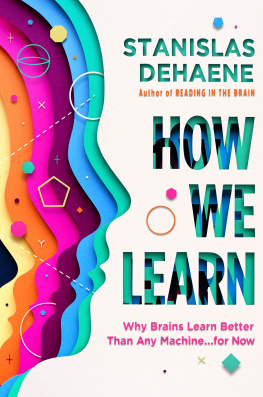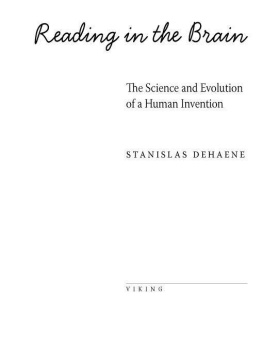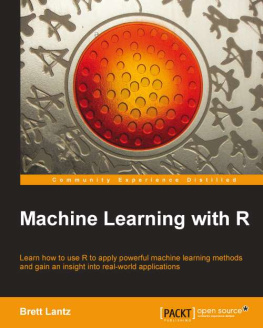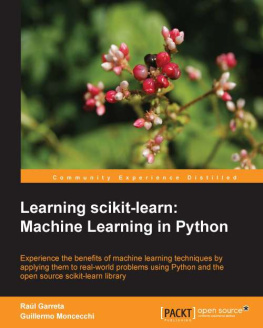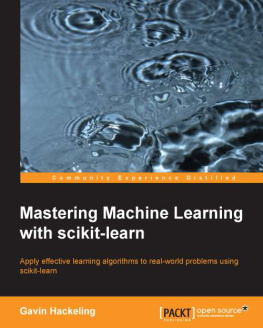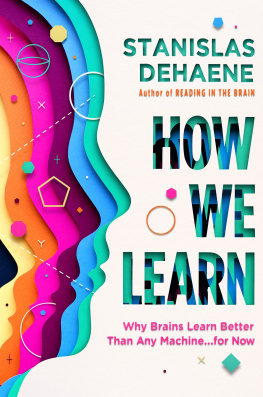Stanislas Dehaene - How we Learn: Why Brains Learn Better Than Any Machine . . . for Now
Here you can read online Stanislas Dehaene - How we Learn: Why Brains Learn Better Than Any Machine . . . for Now full text of the book (entire story) in english for free. Download pdf and epub, get meaning, cover and reviews about this ebook. year: 2020, publisher: Penguin Books, genre: Romance novel. Description of the work, (preface) as well as reviews are available. Best literature library LitArk.com created for fans of good reading and offers a wide selection of genres:
Romance novel
Science fiction
Adventure
Detective
Science
History
Home and family
Prose
Art
Politics
Computer
Non-fiction
Religion
Business
Children
Humor
Choose a favorite category and find really read worthwhile books. Enjoy immersion in the world of imagination, feel the emotions of the characters or learn something new for yourself, make an fascinating discovery.
- Book:How we Learn: Why Brains Learn Better Than Any Machine . . . for Now
- Author:
- Publisher:Penguin Books
- Genre:
- Year:2020
- Rating:3 / 5
- Favourites:Add to favourites
- Your mark:
- 60
- 1
- 2
- 3
- 4
- 5
How we Learn: Why Brains Learn Better Than Any Machine . . . for Now: summary, description and annotation
We offer to read an annotation, description, summary or preface (depends on what the author of the book "How we Learn: Why Brains Learn Better Than Any Machine . . . for Now" wrote himself). If you haven't found the necessary information about the book — write in the comments, we will try to find it.
How we Learn: Why Brains Learn Better Than Any Machine . . . for Now — read online for free the complete book (whole text) full work
Below is the text of the book, divided by pages. System saving the place of the last page read, allows you to conveniently read the book "How we Learn: Why Brains Learn Better Than Any Machine . . . for Now" online for free, without having to search again every time where you left off. Put a bookmark, and you can go to the page where you finished reading at any time.
Font size:
Interval:
Bookmark:
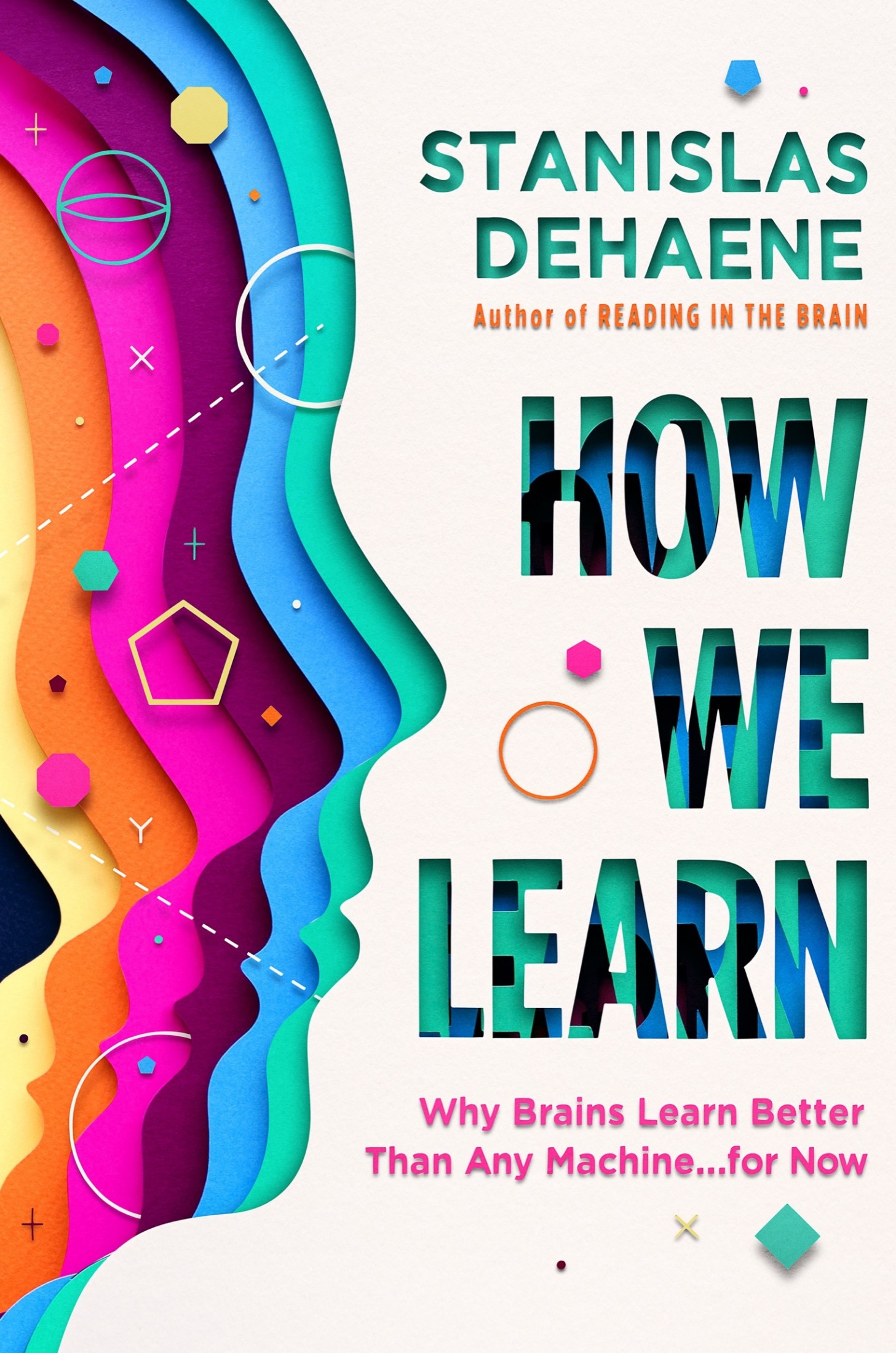
Consciousness and the Brain: Deciphering How the Brain Codes Our Thoughts
Reading in the Brain: The New Science of How We Read
The Number Sense: How the Mind Creates Mathematics
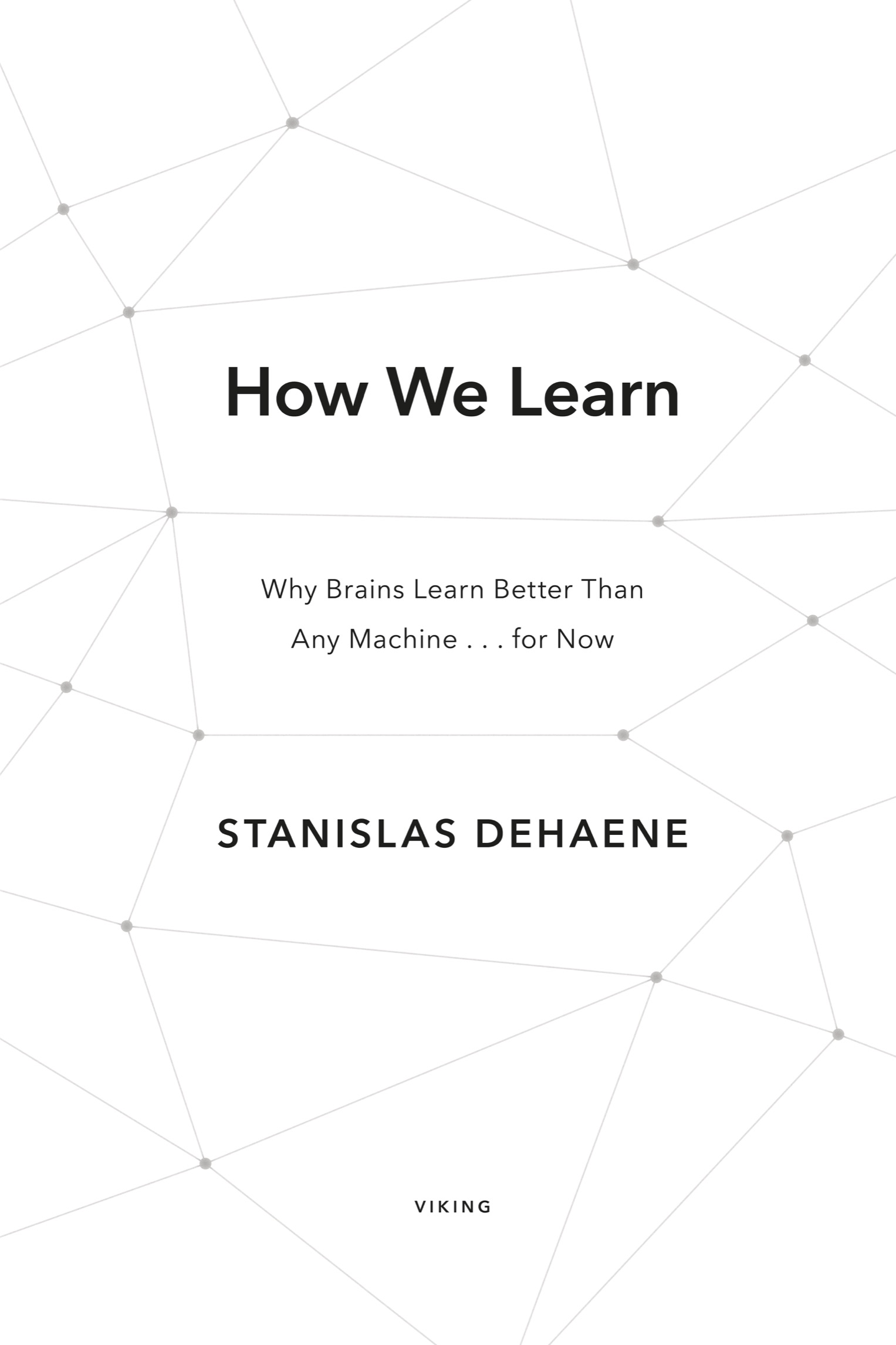
VIKING
An imprint of Penguin Random House LLC
penguinrandomhouse.com
Copyright 2020 by Stanislas Dehaene
Based on, in part, Apprende!, published in France by Odile Jacob, Paris, in 2018. First American edition published by Viking, an imprint of Penguin Random House LLC, in 2020.
Penguin supports copyright. Copyright fuels creativity, encourages diverse voices, promotes free speech, and creates a vibrant culture. Thank you for buying an authorized edition of this book and for complying with copyright laws by not reproducing, scanning, or distributing any part of it in any form without permission. You are supporting writers and allowing Penguin to continue to publish books for every reader.
constitutes an extension to the copyright page.
ISBN 9780525559887 (hardcover)
ISBN 9780525559894 (ebook)
Version_1
For Aurore, who was born this year,
and for all those who once were babies.
Begin by making a more careful study of your pupils, for it is clear that you know nothing about them.
Jean-Jacques Rousseau, Emile, or On Education (1762)
This is a strange and amazing fact: we know every nook and cranny of the human body, we have catalogued every animal on the planet, we have described and baptized every blade of grass, but we have left psychological techniques to their empiricism for centuries, as if they were of lesser importance than those of the healer, the breeder or the farmer.
Jean Piaget, La pdagogie moderne (1949)
If we dont know how we learn, how on earth do we know how to teach?
L. Rafael Reif, president of MIT (March 23, 2017)
In September 2009, an extraordinary child forced me to drastically revise my ideas about learning. I was visiting the Sarah Hospital in Brasilia, a neurological rehabilitation center with a white architecture inspired by Oscar Niemeyer, with which my laboratory has collaborated for about ten years. The director, Lucia Braga, asked me to meet one of her patients, Felipe, a young boy only seven years old, who had spent more than half his life in a hospital bed. She explained to me how, at the age of four, he had been shot in the streetunfortunately not such a rare event in Brazil. The stray bullet had severed his spinal cord, thus rendering him almost completely paralyzed (tetraparetic). It also destroyed the visual areas of his brain: he was fully blind. To help him breathe, an opening was made in his trachea, at the base of his neck. And for over three years, he had been living in a hospital room, locked within the coffin of his inert body.
In the corridor leading to his room, I remember bracing myself at the thought of having to face a broken child. And then I meet... Felipe, a lovely little boy like any other seven-year-oldtalkative, full of life, and curious about everything. He speaks flawlessly with an extensive vocabulary and asks me mischievous questions about French words. I learn that he has always been passionate about languages and never misses an opportunity to enrich his trilingual vocabulary (he speaks Portuguese, English, and Spanish). Although he is blind and bedridden, he escapes into his imagination by writing his own novels, and the hospital team has encouraged him in this path. In a few months, he learned to dictate his stories to an assistant, then write them himself using a special keyboard connected to a computer and sound card. The pediatricians and speech therapists take turns at his bedside, transforming his writings into real, tactile books with embossed illustrations that he proudly sweeps with his fingers, using the little sense of touch that he has left. His stories speak of heroes and heroines, mountains and lakes that he will never see, but that he dreams of like any other little boy.
Meeting with Felipe deeply moved me, and also persuaded me to take a closer look at what is probably the greatest talent of our brain: the ability to learn. Here was a child whose very existence poses a challenge to neuroscience. How do our brains cognitive faculties resist such a radical upheaval of their environment? Why could Felipe and I share the same thoughts, given our extraordinarily different sensory experiences? How do different human brains converge on the same concepts, almost regardless of how and when they learn them?
Many neuroscientists are empiricists: together, with the English Enlightenment philosopher John Locke (16321704), they presume that the brain simply draws its knowledge from its environment. In this view, the main property of cortical circuits is their plasticity, their ability to adapt to their inputs. And, indeed, nerve cells possess a remarkable ability to constantly adjust their synapses according to the signals they receive. Yet if this were the brains main drive, my little Felipe, deprived of visual and motor inputs, should have become a profoundly limited person. By what miracle did he manage to develop strictly normal cognitive abilities?
Felipes case is by no means unique. Everybody knows the story of Helen Keller (18801968) and Marie Heurtin (18851921), both of whom were born deaf and blind and yet, after years of grueling social isolation, learned sign language and ultimately became brilliant thinkers and writers. Throughout these pages, we will meet many other individuals who, I hope, will radically alter your views on learning. One of them is Emmanuel Giroux, who has been blind since the age of eleven but became a top-notch mathematician. Paraphrasing the fox in Antoine de Saint-Exuprys The Little Prince (1943), Giroux confidently states: In geometry, what is essential is invisible to the eye. It is only with the mind that you can see well. How does this blind man manage to swiftly navigate within the abstract spaces of algebraic geometry, manipulating planes, spheres, and volumes without ever seeing them? We will discover that he uses the same brain circuits as other mathematicians, but that his visual cortex, far from remaining inactive, has actually repurposed itself to do math.
I will also introduce you to Nico, a young painter who, while visiting the Marmottan Museum in Paris, managed to make an excellent copy of Monets famous painting Impression, Sunrise (see in the color insert). What is so exceptional about this? Nothing, besides the fact that he accomplished it with only a single hemisphere, his left onethe right half of his brain was almost fully removed at the age of three! Nicos brain learned to squeeze all his talents into half a brain: speech, writing, and reading, as usual, but drawing and painting too, which are generally thought to be functions of the right hemisphere, and also computer science and even wheelchair fencing, a sport in which he has reached the rank of champion in Spain. Forget everything you were told about the respective roles of both hemispheres, because Nicos life proves that anyone can become a creative and talented artist without a right hemisphere! Cerebral plasticity seems to work miracles.
We will also visit the infamous orphanages of Bucharest where children were left from birth in quasi-abandonand yet, years later, some of them, adopted before the age of one or two, have had almost normal school experiences.
Font size:
Interval:
Bookmark:
Similar books «How we Learn: Why Brains Learn Better Than Any Machine . . . for Now»
Look at similar books to How we Learn: Why Brains Learn Better Than Any Machine . . . for Now. We have selected literature similar in name and meaning in the hope of providing readers with more options to find new, interesting, not yet read works.
Discussion, reviews of the book How we Learn: Why Brains Learn Better Than Any Machine . . . for Now and just readers' own opinions. Leave your comments, write what you think about the work, its meaning or the main characters. Specify what exactly you liked and what you didn't like, and why you think so.

